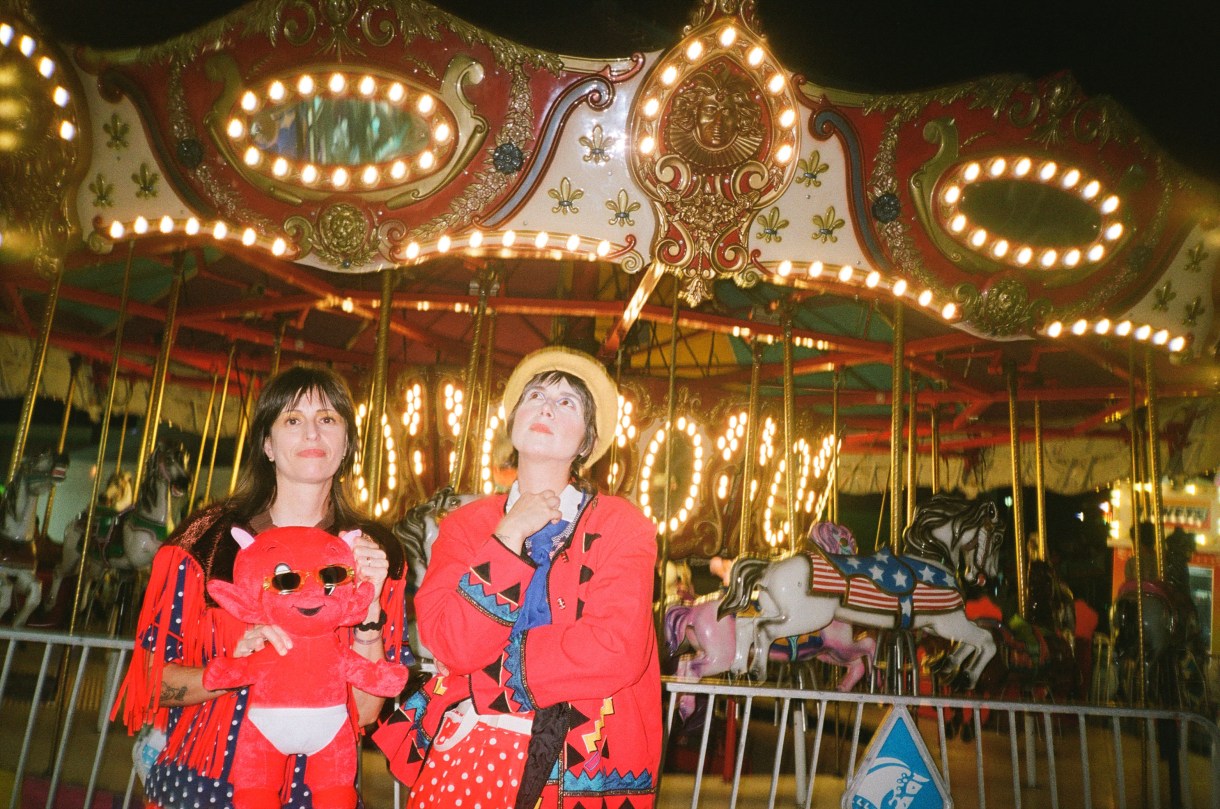
Living as a queer and trans artist in Florida has become extremely difficult. Not only are queer and trans people constantly under attack through legislative actions against gender-affirming care, drag shows, and books, among many other laws, but Ron DeSantis also recently slashed funding for the arts in the state. As in all of it. DeSantis vetoed $32 million in arts funding approved by Florida’s legislature for the 2024-25 budget, severely threatening the financial stability of arts organizations and programs throughout the state. In the face of all this, South Florida queer and gender nonconforming music group Las Nubes has a clear message: “We’re not going anywhere.”
Multi-instrumental artists Ale Campos and Emile Milgrim formed Las Nubes in 2014 and are no strangers to the intense highs and lows of living and making art in Florida. In fact, South Florida’s erratic climate —in both the weather sense and the political sense —is baked into their music. Over the past decade, they’ve been producing EPs and albums full of shoegaze-inflected fuzzy dream pop-rock bangers that are as assertive as they are tender. Their debut LP, SMVT, dropped in 2019 and it was clear from the first notes on the album that they were an act to keep watching. Now with the release of their sophomore LP, Tormentas Malsanas (or “unhealthy storms”), it’s obvious that Las Nubes has fully grown into themselves and has fully captured the simultaneously unbearable and joyful reality of living in and loving South Florida.
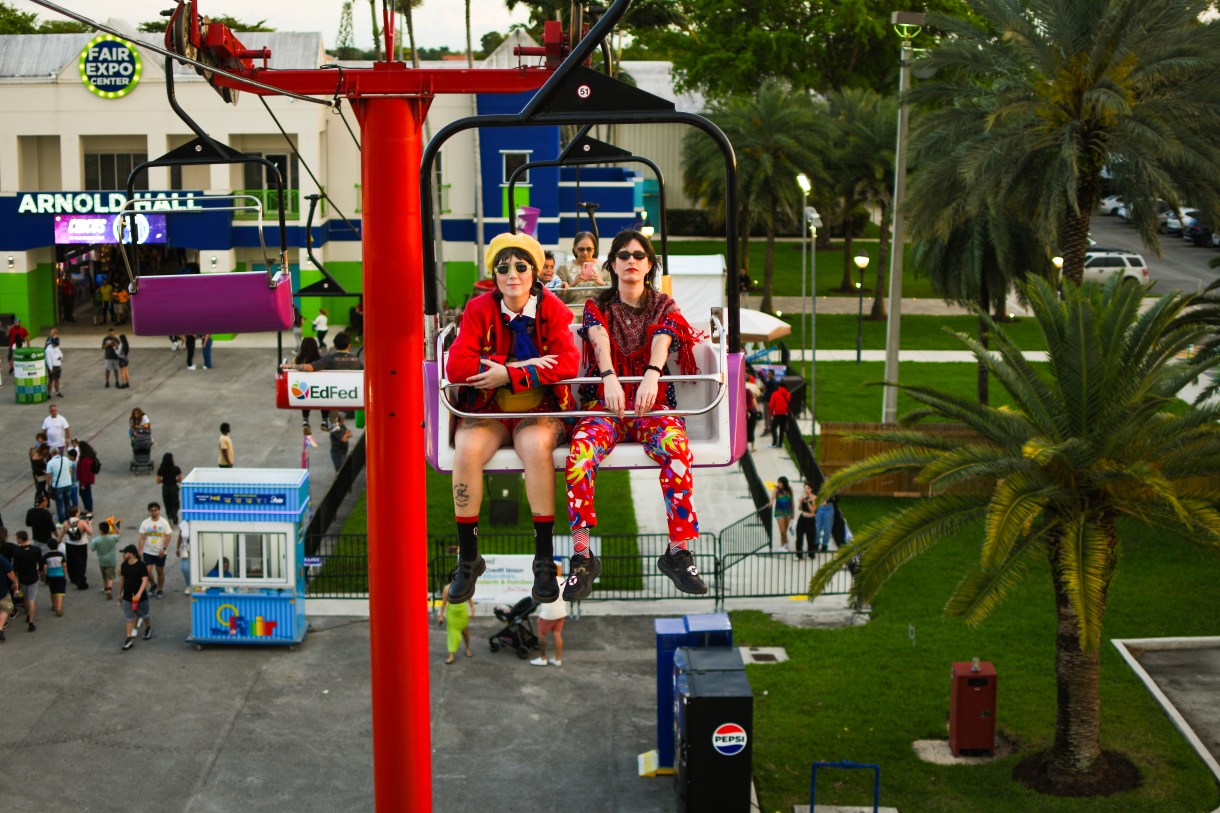
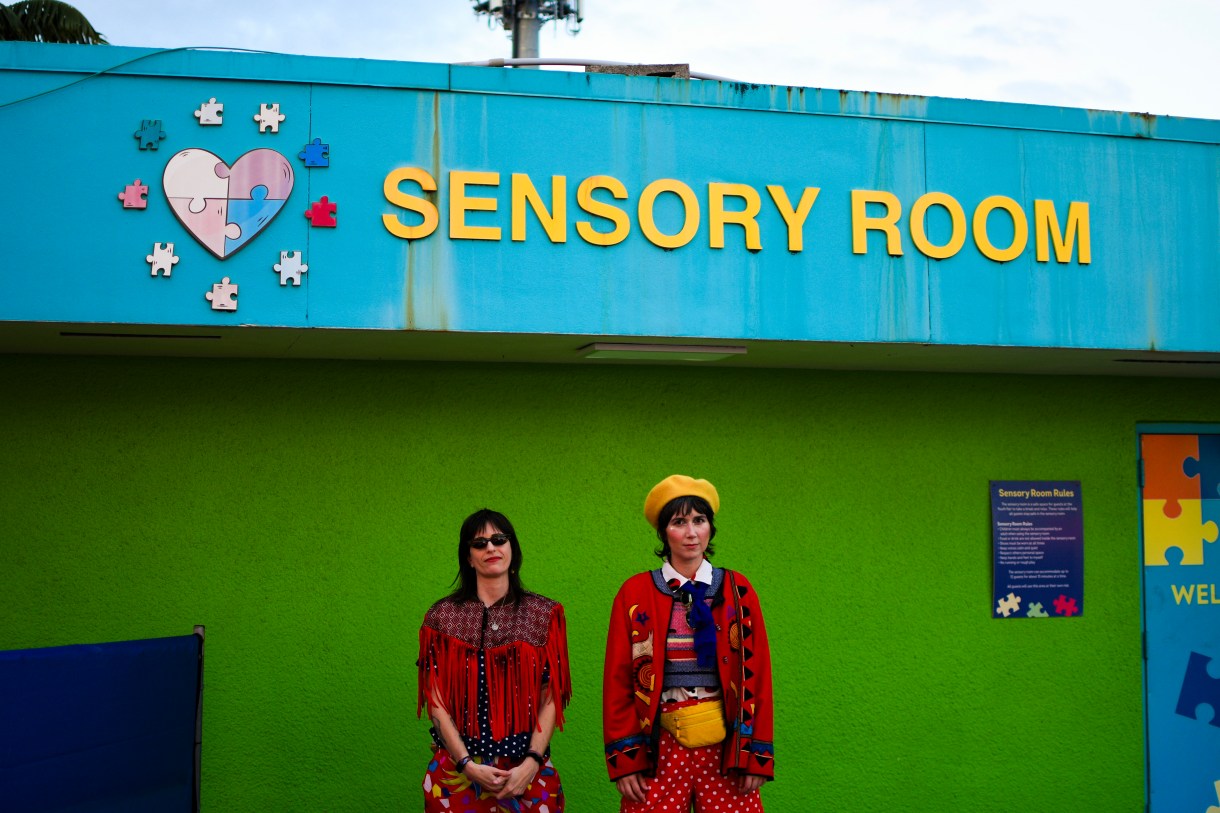
Released on June 14, Tormentas Malsanas is a barrage of raucous hooks and oscillating emotions, going in and out of the ups and downs of being alive in the world we live in, of experiencing the sadness and strangeness of a pandemic, of lives changing in an instant, of relationships ending and beginning, and of trying to hold onto hope when it feels like such a useless thing to do.
Written and recorded prior to and all throughout the Covid-19 pandemic, Tormentas Malsanas is informed by a variety of difficult personal experiences amplified by the pandemic. Campos says, “There were a lot of things besides the intensity of the pandemic that influenced the writing of the songs — a death in the family, one of our supporting band members [Nina] being pregnant on our previous tour, a friend of ours losing their child when they were giving birth.” Milgrim continues, “I kind of had a dichotomy because at first, with the pandemic, I thought ‘This is good because we have time to write this.’ Then, at the same time, when things started to open up again, I came to a point where I didn’t know what I was doing with my life. I had a nervous breakdown. I quit my job, and I decided that doing this band and doing music would be the thing I was going to do. A lot of that sentiment went into trying to get this album out.”
Similar to how rough the journey to this album was, the title itself, a nod to the unpredictable weather we experience in Florida summertime, implies these shifts in emotions and these passions straightforwardly. “Being from South Florida, we really relate to epic weather events. When shit hits the fan, my brain makes sense of it as a crazy storm or a hurricane,” Campos says. “In South Florida, we have the most intense summers. Emile and I wanted to do a summer record where the songs sound like they’re happy, but the songs are somewhat depressing. We wanted to represent what South Florida is in terms of terrible weather even though it’s a time of year when everyone’s happy and wanting to go outside. It’s just not the same for us.”
“I’ve lived in different places throughout the U.S. and spent summers in different places, but South Florida is just brutal,” Milgrim adds. “The weather and your own feelings can really turn on a dime. It can go from torrential downpours and thunderclap madness to sunshine and birds in 15 minutes. I’ve never seen that happen anywhere else.”

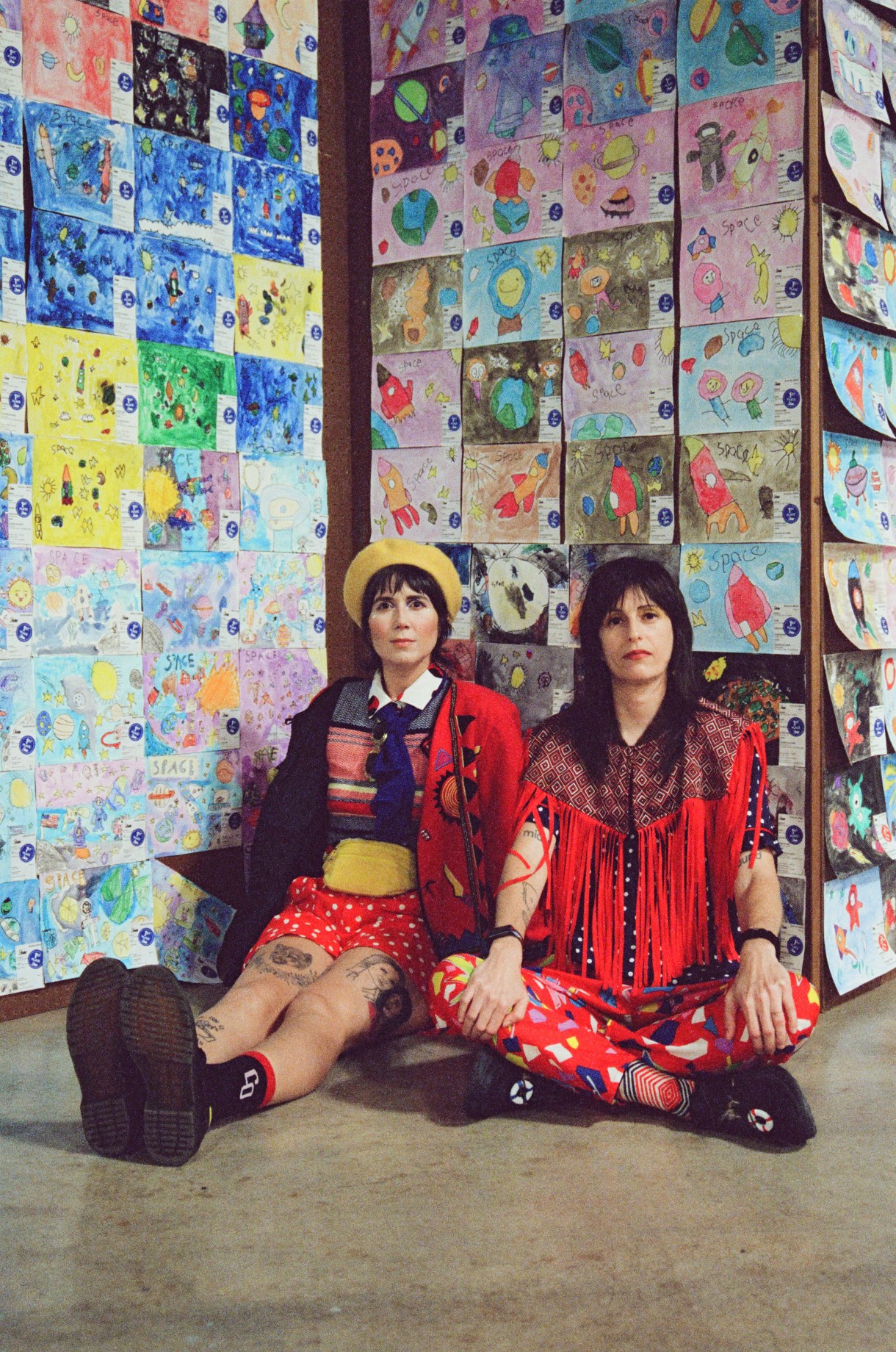
As a South Floridian myself, I understand exactly what Las Nubes is getting at here. The physical and emotional turbulence of our climate in the summer is becoming more intolerable as the years go by. In the last two years, we’ve suffered catastrophic flooding, property damage, and mass migration in and out of the state all because of summer storms and our state and municipal governments’ inaction. It’s added a new, discomfiting layer to our lives here — we’re not only under attack through legislation, but we’re also suffering from the lack of care for our basic safety.
I’ve been a fan of their work since the very beginning but this new album is reflective of my experiences on multiple levels. After just a quick listen, it’s easy to hear these contrasts and fluctuations alluding to Florida’s weather and psychological climate in the music itself. The album opens with the hazy and hypnotic “Would Be,” a song about the disappointment of growing up and realizing your efforts towards others won’t always be reciprocated. Tension continues to build and, at the midpoint of the album, you get the haunting 10-minute Spanish-language slow burn, “Caricia,” that features swirling, buzzing guitars and airy vocals bringing the album’s suspense to its most restless point. Just before the two joyous closers, we get “The Weeks That Followed,” which takes the revolving instrumentals of “Caricia” and puts them into lyrical form by discussing the struggles of emotions spiraling from one direction to another. Then finally, the sun’s out again as “Canse” and “Drop In – Ya Freaks” blast you to the end of the album with heavy guitars and catchy hooks designed to remind you that even with all the “bad weather,” bliss is always on the horizon.
“My perspective and my outlook is that I might feel terribly about certain things right now, but I know that in the long run, things will get better and nothing is forever,” Campos explains. “I want people to remember that they don’t have to feel awful forever.”

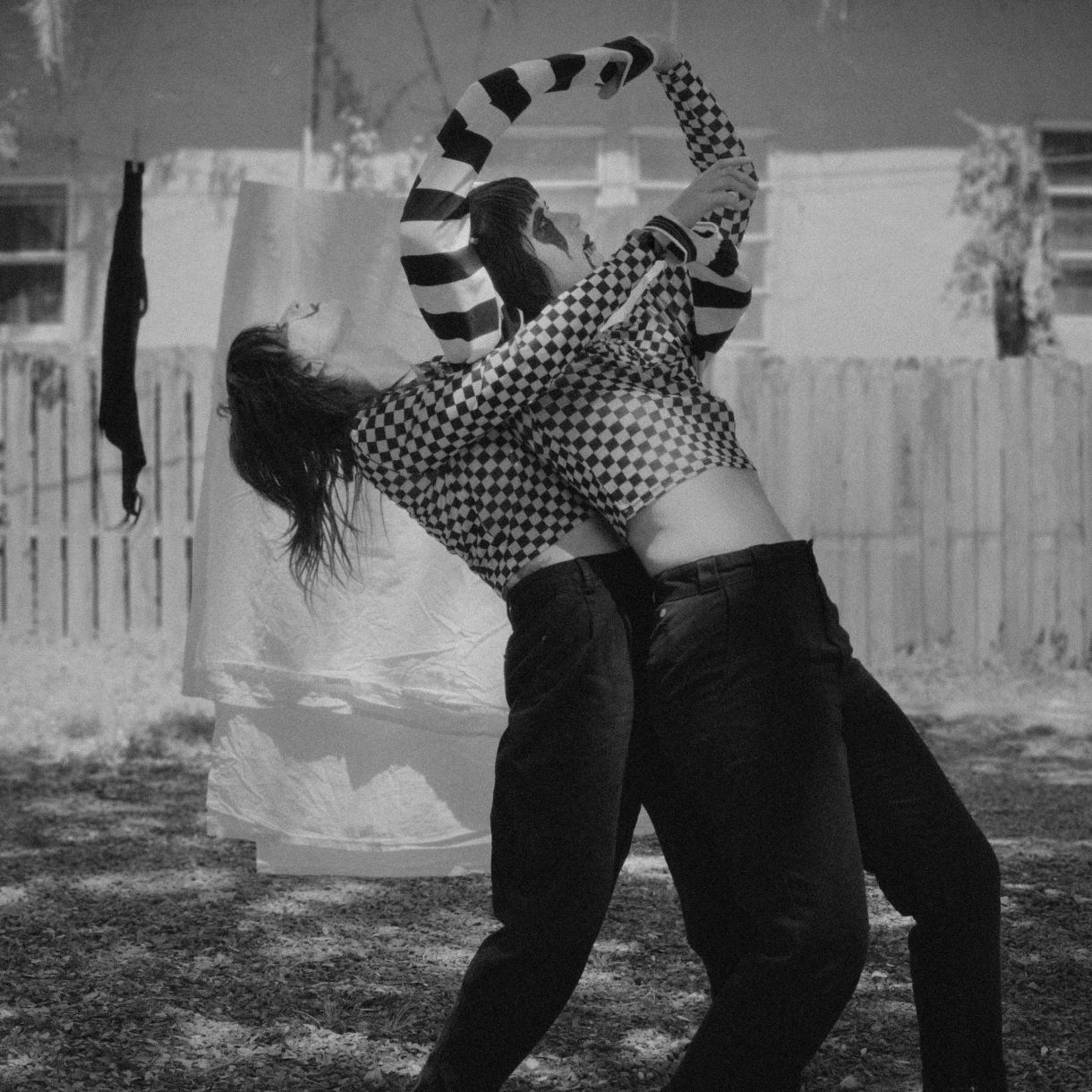
According to Milgrim, there was a cinematic approach to arranging, producing, writing, and recording the album. Gregg Araki’s films The Doom Generation and Nowhere were major influences. “They’re these queer, alternative, wild films about young people that have all of these tragedies and also hopeful moments,” Milgrim says. “They have very stark endings where everything is fucked up, but everything’s going to be okay somehow. To me, that’s how the record feels. It’s big and beautiful and slow but also, everything’s going to be fine even though the world is exploding.”
The album plays perfectly with the structure of a film or short story — there’s the exposition, rising action, climax, falling action, and resolution. Campos notes the order was super intentional and took time to plot out. “At first, we were going to make ‘Caricia’ the closing track because I didn’t want to ‘burden’ people with a 10-minute song, but that’s the eye of the storm,” Campos says. “It’s a brief reprieve, then we jump back in with ‘Endreados’ and things calm down by the time ‘Drop In’ closes the album.”
It’s a delicate balance, but one that Las Nubes always hits perfectly, especially on Tormentas Malsanas. Despite all of these disparate emotions, musical styles, and influences, Tormentas Malsanas always feels cohesive and harmonious. Campos credits this to the way her and Milgrim are able to unite the melodies, riffs, and genre homages on the album in addition to the lyrics being vague enough to welcome a variety of interpretations and opinions. “All of the songs come full circle by the end of the track while also still contributing to the whole story of the album,” Milgrim says. “I don’t want to say they’re dealing with universal ideas, but these are cautionary and common tales. People have felt these feelings and understand them. Whether it’s in the lyrics or in the composition, there’s something for everyone on it.”
Outside of their interpersonal struggles and the global conflicts we all have to worry about, as queer and gender nonconforming artists, Las Nubes also produced and released Tormentas Malsanas in this particularly dangerous time for queer and trans artists in Florida’s history. “Already, they were doing so many different things to make just existing as a queer and trans person in this state [difficult], but now they’re taking away the funding that helps a lot of queer and trans artists doing their work,” Milgrim says. “It’s fucked up because it’s already difficult to be an artist in general — let alone a queer artist or a trans artist — and now you can’t get any institutional support because of the place you live.”
Regardless, Las Nubes is determined to keep moving forward despite it all. “I started writing songs in Spanish more mostly as a tribute to my culture and heritage, but it was specifically during the Trump administration because it was a way of saying ‘Fuck you. We’re here. We exist,’” Campos says. “So, choosing to go forward in the face of all that’s happening against queer and trans people here is the same thing. We’re not going anywhere.”
“We are all we have,” Milgrim says. “No one in my general orbit is making things just for the sake of making money or getting paid. Art making, music making, and organizing is about building community. We need to continue to support and perpetuate our community so we have a sense of belonging. We have to continue building relationships with each other through this work because so many things around us are telling us we shouldn’t exist.”
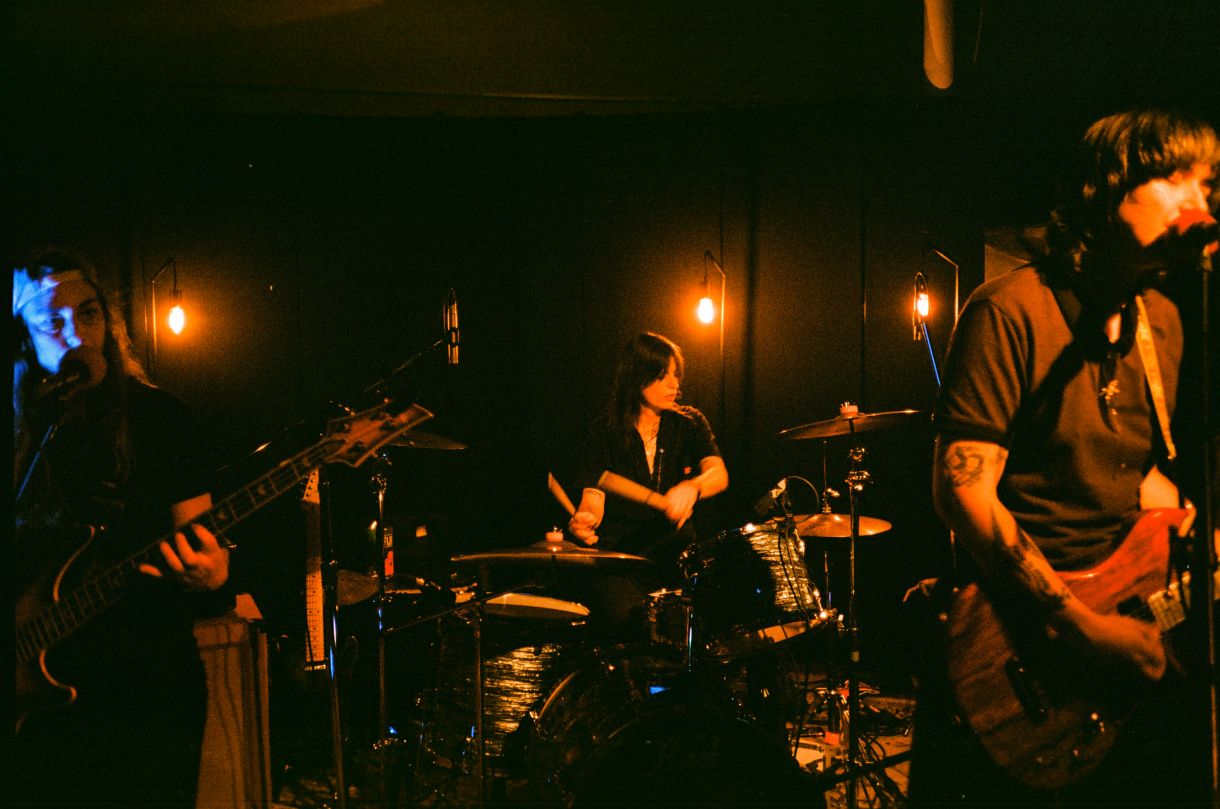

According to Campos, their work is an opportunity to stand up for themselves and what they believe in to the fullest extent: “I’m not a very confrontational person but when it comes to music or art, that’s a space that I want to use as a platform as a place to express myself and represent who we are. I don’t care if it ruffles feathers, especially when it comes to using our art as a place to talk about these issues.”
For now, Las Nubes is focusing on their immediate next steps. On August 2, they’re launching their 14-date tour in San Diego and, CA at The 61st House, then traveling north up the coast.
As for what they hope people will get from the album, Campos and Milgrim agree that they want people to truly see them for who they are and be open to their continued growth. “I hope people can see that we’re super versatile, and we’re able to do whatever we want,” Campos says. “Our first album and this album are vastly different, so I hope people will see that we’re always experimenting and trying to do something new.”
“I think if you’re drawn into a band’s music for any reason, it’s important to keep listening,” Milgrim says. “Bands are kind of like child actors, they’re always changing and growing. Interests change, technology changes, and relationships change and you kind of roll with that. I think this new album might be very surprising for some people. And to us, that’s a good thing.”
Even in this stormy climate for making queer art in Florida, Las Nubes aren’t backing down. They understand that carving out these spaces for their voices is no small thing.
“If you’re given any platform in any way, if you can reach just 20 people, you better be doing it,” Milgrim says. “Because that’s 20 more people who get to share in this experience, have their minds opened further, and share in this exchange of ideas.”



Thanks for the rec, they are a whole vibe!!
(Also just wanted to say I tend to really like the music you write about and the way you write about it so please keep the music coverage coming, Stef!!)